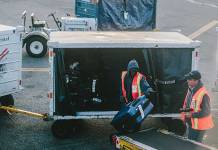
Jaguar Land Rover issued an official press release announcing plans to recall a total of 54,000 cars in the country due to dangerous airbags, joining the fray of the dangerous Japanese-tech Takata airbags.
Tokyo-based Takata Corp has distributed millions of airbags that offer a high risk to the driver in the case of a car crash. The airbag is inflated by a small, loaded device, but if it is exposed to long periods of humidity the device could explode, instead of just inflating the airbag.
Government investigators link the defective inflator to 10 deaths and 160 injuries. Honda models account for 100 injuries and eight fatalities so far. Victims die in a matter of seconds because of a device meant to protect them.

The National Highway Traffic Safety Administration (NHTSA) published a list of all affected vehicles. Owners of said models should contact the dealer for appropriate repairs.
JLR joined recently acceded to the list, and the company issued a recall for 54,000 cars in the US. It is the first of waves of recalls that will eventually cover up to 100,000 vehicles. 2007-11’ Land Rover Range Rover SUV and 2009-11’ Jaguar XF sedan will be included.
The explosive factory
More than a decade has passed since Takata allegedly knew about the problem. According to two former employees, the Japanese-based manufacturer secretly conducted tests on 50 airbags and found negative results. One of the whistleblowers, he says, was the senior member of this testing lab. It was the year 2004.
Recall in the US started in 2014 after the NHTSA called it, with a penalty of $14,000 per day for not cooperating with the agency.
According to an investigation made by Reuters, the Takata plant in industrial town Ciudad Frontera, Mexico, has been confirmed as the source of the defective device made back in 2001, 2001 and 2012.
https://twitter.com/zesty_marketing/status/763294190629429248
The facility’s record doesn’t help its innocence 2006, the factory blew up, driving residents and workers away due to volatile high risk.
Reuters’ investigation suggest pressure inside the supplier to ramp up the production and drive down the cost of the mechanism that triggers the airbags. Reuters also points that executive in Tokyo didn’t know what was going on in the foreign factory.
Source: CNET











